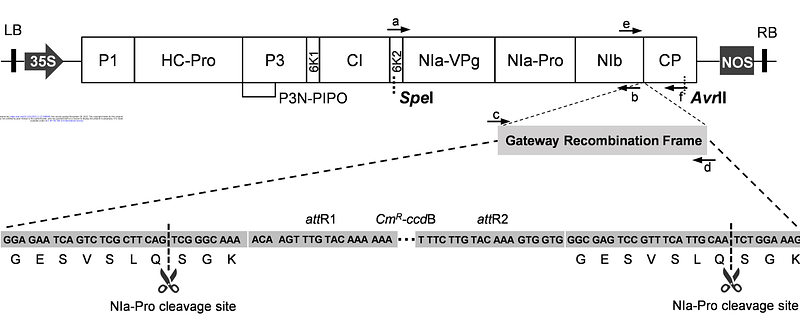Virus-induced gene silencing (VIGS) as a tool for functional genetic analysis in passion fruit plants

Virus-induced gene silencing (VIGS) as a tool for functional genetic analysis in passion fruit plants
Wang, X.; Shen, W.; Cui, H.; Dai, Z.
AbstractPassion fruit (Passiflora edulis) is grown perennially in sub-tropical and tropical areas. Its fruits contain multiple vitamins and antioxidants, and thus are consumed increasingly in drinks and foods. However, the functions and regulations of genes that are engaged in the biosynthesis of the health-promoting compounds in passion fruits remain largely unknown. Its whole genome sequence has just been published recently. Virus-induced gene silencing (VIGS) is a reverse genetics tool for analyzing gene function. Here, we engineered telosma mosaic virus (TelMV), a potyvirus infecting passion fruit, into a VIGS vector by inserting the Gateway-compatible recombination sites. The newly constructed TelMV-VIGS virus successfully expressed foreign protein and induced systemic infection in both Nicotiana benthamiana and P. edulis plants. Intriguingly, TelMV-VIGS vector containing different fragments of green fluorescent protein (GFP) gene induced systemic gene silencing on the GFP-transgenic N. benthamiana plants (16c). When the phytoene desaturase (PDS) gene, an endogenous gene in passion fruit, was engineered into the vector, it triggered the silencing of PePDS, as evidenced by the reduced mRNA levels and photobleached phenotype. We reported the first development of VIGS vector in passion fruit, as the first step in our endeavor of discovering horticulturally important genes for improving passion fruit production and quality.